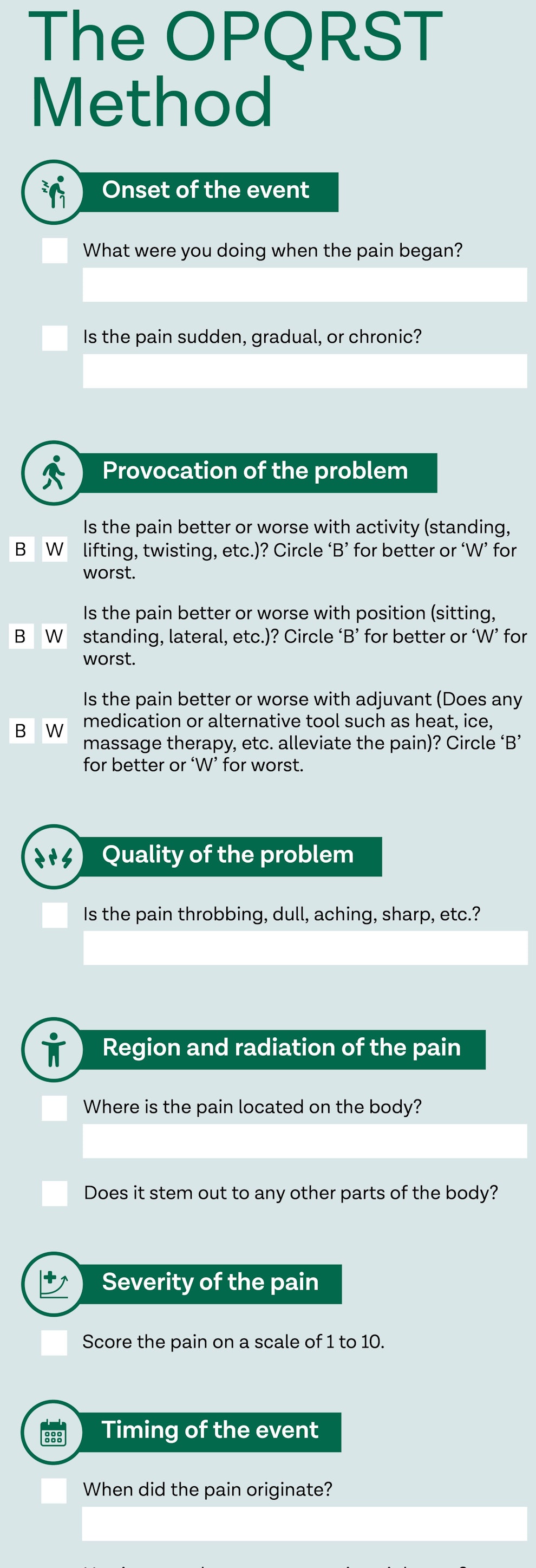18 Tips on Preparing for a Doctor’s Visit
Article at a glance
Insurance plays a large role in a patient’s access to healthcare. To learn more about how to prepare financially for a doctor visit, read this section.
Family history can greatly impact one’s current health and wellbeing. To learn more about what familial medical information is important to bring, read this section.
Medication affects a patient’s healthcare daily, therefore, it’s vital for a provider to understand which medicines their patient is taking. To learn more about how to prepare your medication list for your appointment, read this section.
Daily tracking devices are perfect for displaying what a patient’s daily health looks like. To learn more about which daily tracking devices are pertinent to bring, read this section.

Whether it’s a patient’s first time meeting with a doctor or they’re attending their annual check-up, there are a few things they need to keep in mind when they prepare for a doctor’s visit.
Ways to Prepare Prior to the Appointment
Arrive On Time to the Doctor’s Appointment
Care providers are often scheduled to see multiple patients a day while navigating around a busy schedule. In order for you to maximize the time you have with your provider, it’s important to arrive on time to the doctor’s office and avoid feeling rushed during your visit. It’s even better to show up to your appointment approximately 10–15 minutes early so there’s ample time for a nurse to check your vitals (height, weight, blood pressure, etc.) prior to seeing the doctor. To help keep you on schedule, record your appointment date and time on a calendar or in a planner once it’s made so you can incorporate it into your day.
Inform the Doctor’s Office of Accommodations
Before arriving at your appointment, it’s important to think through any accommodations the office should prepare for you. Such accommodations may include handicap parking or assistance, the help of an interpreter, the help of a translator, etc. If any such accommodations would be helpful during your visit, it’s important to call the office ahead of time so they can arrange everything accordingly for when you arrive.
Ensure the Office Takes Your Insurance
When it comes to finances, insurance plays a large role. Before finalizing an appointment with a provider or specialist, it’s important to ensure that the office accepts your primary form of insurance. Doing so will help you to avoid extra charges or fees for physicians that aren’t in your network. Oak Street Health locations accept a wide range of insurance providers and have a Care Team that’s ready and willing to walk their patients through their insurance benefits.
It’s also important to bring your insurance cards to the appointment along with your ID to make sure the office can scan your card, check your insurance coverage, and bill you appropriately.
To learn more about various insurance plans and what they provide, visit this source.
Route Your Trip
Before making an appointment, it’s important to plan your route and see where an office is located in relation to your home. Route how far it is to drive to the provider location or which public transportation options are available to take you there. Many insurance plans offer rides via services such as Uber or Lyft to assist their patients if necessary. Oak Street Health also provides transportation to and from appointments via company vans or rideshare services like Lyft, if needed.
Record Your Questions/Concerns
When finally meeting with the doctor, it can be overwhelming and easy to forget all of the questions or concerns you wanted to address. Prior to your appointment, it can be helpful to record a list of questions you want to ask, comments you want to make, or concerns you want to address with your doctor. When you’re finally at your visit, simply pull out the paper list or notes you made on your phone so you can mention all that was on your mind and receive the appropriate medical advice and treatment plan.

Items to Bring to the Appointment
Bring Items For the Waiting Room
There are going to be a variety of items you may need to bring along with you to your doctor’s appointment. Have a bag set aside that can carry all of your belongings, including a couple of items to entertain you while waiting to see the doctor. At times, there may be a wait prior to seeing your care provider. To help bide time, it’s good to bring a book, crossword puzzle, magazine, or other items along with you to keep you occupied.
Prepare for a Doctor’s Visit by Printing Out Test Results
Especially when establishing a relationship with a new doctor or provider, it’s important to have all prior medical tests and results printed out and documented for your visit. Pertinent test results may include but are not limited to past mammograms, colonoscopies, vaccination records, blood tests, and more. Don’t leave anything out and let the provider decide what’s relevant or not, that way they have a broad scope of understanding about your health history and care.
Gather Family Records
Family medical history can have a large impact on your current health and wellbeing. Compile all family medical records or a list of familial health conditions for your doctor to see. Certain conditions may be genetic, inciting a need for certain preventative health measures or screenings to be taken with your care. If possible, talk with family members, such as mothers or fathers, about their health history and any medical incidences they’ve struggled with. Knowing any familial medical issues can aid you in maintaining a healthy lifestyle throughout the years ahead.
Compile All Past & Current Medications to Bring
Make a list of any past or current medications for your provider to see, even if they’re over-the-counter drugs. This list should include dosage levels and how frequently you are taking them. If taking multiple medications, bring the bottles or packs in with you, even if they’re expired or empty. Having all medications laid out in front of them, allows a provider to check for duplicates, see if any refills are necessary, and generally aid the patient in organizing their medicinal routine. Furthermore, it’s important to be honest with the provider about which medications you’re on, why you’re on them, and how often you are truly taking them as it plays a large role in your healthcare. Don’t be afraid to explain hesitancies, ask questions, or talk through any side effects or concerns you have surrounding any medications you’re on or recommended to be on.

Create a List of Past & Current Providers
Before attending your doctor’s visit, compile a list of all other doctors from the past along with current care providers or specialists you see. If possible, record their contact information as well so that the provider you are visiting can reach out and your doctors can come together as a comprehensive care unit.
Record Any Allergies, Prior Surgeries, or Current Medical Conditions
Any allergies should be recorded and discussed with your physician e.g. food allergies, seasonal allergies, allergies to medicine, etc. Allergies impact a patient’s daily health and influence which medications they can or cannot take. Furthermore, any prior surgeries, visits to the emergency room, and medical incidents or conditions should be listed for your provider to be aware of so they have a full understanding of their patient’s medical history.
Record Any Current Issues or Symptoms
If a patient is experiencing new symptoms of a medical issue or concern since their last visit, it’s important for them to compile information surrounding the problem prior to seeing the doctor. For guidance on how to record information about your health concerns, follow the famous OPQRST method.
O: Onset of the event
What were you doing when the pain began?
Is the pain sudden, gradual, or chronic?
P: Provocation of the problem.
- Is the pain better or worse with:
Activity: standing, lifting, twisting, etc.
Position: sitting, standing, lateral, etc.
Adjuvant: Does any medication or alternative tool such as heat, ice, massage therapy, etc. alleviate the pain?
Q: Quality of the pain.
Is the pain throbbing, dull, aching, sharp, etc.?
R: Region and radiation of the pain.
Where is the pain located on the body?
Does it stem out to any other parts of the body?
S: Severity of the pain.
Score the pain on a scale of 1 to 10.
T: Timing of the event.
When did the pain originate?
Has it gotten better or worse since it began?

Bring Along Any Health or Fitness Trackers
Any sort of daily tracking mechanism is a good indication of a patient’s daily habits, therefore, they’re perfect tools to bring along with them to their appointment. Examples of daily trackers may include but are not limited to fitness watches, glucometers, blood sugar logs, symptom trackers, blood pressure logs, food logs, etc.
Bring Along Emergency Contact Information
It’s important for your provider to have all pertinent emergency contact information. Write down the name, phone number, address, and email for any family members, friends, attorneys, etc. you find necessary to take care of your healthcare in an emergency situation.
Have a Loved One Join You
At times, doctor’s appointments can be overwhelming. Having a loved one join you is the perfect way to feel supported and comfortable throughout your visit. Not to mention, having a friend or family member in the room allows you to have an extra set of ears listening to what the provider has to say. A ‘loved one’ can mean a family member, friend, caretaker, health aid, or anyone else in your life that you feel comfortable having involved in your healthcare.
Bring a Note-Taking Device
Whether it’s a physical notepad or the notes section of a smartphone, it’s never a bad idea to bring along a device you can take notes on. When your questions or concerns are being addressed, copy down what the doctor says in response to them. Having notes about what is discussed during the appointment can help you assimilate everything later when reflecting on your doctor’s advice. Furthermore, understanding test results or readings can be complicated or confusing, so taking notes while discussing them can help you to understand the results when looking at them alone.
Things to Focus on During the Appointment
Focus on Relaxation
Many patients experience what is known as ‘white-coat stress’ in which their blood pressure is raised slightly due to their nerves surrounding seeing a doctor. White-coat stress can impact a patient’s test results and readings, so prior to one’s appointment, it’s good to find ways to relax and relieve tension. Try various activities to calm your nerves before the appointment, such as:
Breathing exercises
Taking a walk
Listening to calming music
Journaling about your thoughts
Sipping on a warm, decaffeinated drink
Regularly participating in yoga, tai chi, or meditation
Herbal remedies with soothing essential oil sprays or lotions
Be Honest.
Lastly, one of the most crucial aspects of a doctor/provider relationship is that it should be based on honesty. Your doctor is there to help you and protect your health and wellbeing, therefore, it’s important to be honest with them so they comprehensively understand what and how you’re feeling.
Follow-Up With Scheduling
Before leaving, it’s important to check with your doctor and the office staff about follow-up tasks such as:
Prescription Refills
Outcomes of Test Results
Next Appointment Details
Sources
- https://www.nia.nih.gov/health/how-prepare-doctors-appointment
- https://powerfulpatients.org/2016/12/27/15-tips-to-get-the-most-from-your-doctors-visit/
- https://health.clevelandclinic.org/5‑ways-to-make-the-most-of-your-doctors-appointment/
- https://www.inhomecare.com/10-things-to-bring-to-every-doctors-appointment-preparing-to-see-your-doctor/
- https://www.uofmhealth.org/health-library/uz2209
Preparing for a Doctor’s Visit
This infographic provides tips on the best ways to prep for a doctor’s appointment.




